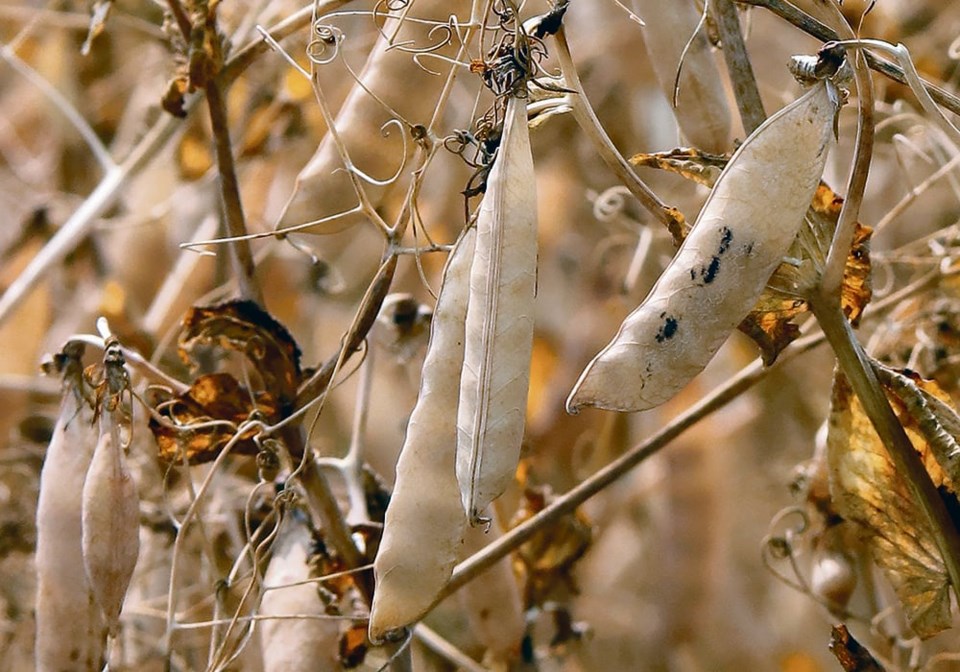SASKATOON — Canadian pea protein manufacturers have filed an anti-dumping and countervailing duty case against Chinese imports.
“We believe the evidence shows Chinese companies are competing unfairly by selling product into Canada at dumped and subsidized prices,” Nutri-Pea said in an email.
The Portage la Prairie, Man., company manufactures food-grade protein isolates, starches and fibres derived from yellow peas grown in Canada.
“The U.S. government has already applied duties of up to 612 percent on some of these same Chinese companies for similar unfair trade practices in that market,” stated Nutri-Pea.
“We are pleased the Canada Border Services Agency (CBSA) and the Canadian International Trade Tribunal (CITT) are now moving forward with an investigation of these practices.”
Roquette Canada Ltd. is the other company named in the complaint. It operates the world’s largest pea protein plant, which is also located in Portage la Prairie.
MarketsFarm analyst Bruce Burnett said a lot must happen before Chinese pea protein could be effectively shut out of the Canadian market.
However, if it does occur, it could reduce Chinese demand for Canadian peas because China would be effectively locked out of the North American market.
“It would potentially be a threat to our export program,” he said.
China is Canada’s top market for peas, but the country increasingly has other options for sourcing the product.
Russia has shipped 1.03 million tonnes of the crop to that market so far in the 2023-24 campaign, according to the Russian Union of Grain Exporters.
There is a lot riding on what Canadian regulators decide.
The CITT will be conducting a preliminary inquiry to determine whether the imports are harming Canadian producers. Its decision will be issued by June 21, 2024.
The CBSA will investigate whether the imports are being sold in Canada at unfair prices and/or are being subsidized. It will make a preliminary decision on that matter by July 22.
The CBSA may impose provisional duties within 90 days of its preliminary determination.
There are 50 anti-dumping and countervailing duty measures in force in Canada covering a wide range of industrial, consumer and food products.
The Canadian market for pea protein is estimated at $45 million in 2023, down from $54 million in 2022.
Canada’s pea protein manufacturing industry suffered a setback last year when .
However, there was a positive development this year when that will be operating by the end of 2025.
Protein Industries Canada believes Canada could eventually have a $25 billion food ingredient manufacturing sector by 2035, which would necessitate the construction of 10 to 15 new processing facilities.
Pea protein can be consumed directly, but it is most often used in food products, including sports and nutritional drinks, nutrition bars and plant-based meat alternatives, according to Nutri-Pea.
The companies contend China is artificially suppressing the market price of pea protein by providing its companies with “hundreds of millions of dollars” in subsidies.
“As a result of these and other distortions, Chinese pea protein prices have been consistently lower than North American pea protein prices,” Nutri-Pea stated in a brief summarizing its complaint.
The brief noted that the U.S. duties on Chinese pea protein are having an impact in Canada.
“As a result, Chinese companies are already diverting their unfairly traded products to the Canadian market with the reality that this could grow significantly — underscoring the importance of this case being filed in Canada,” stated the brief.
“Chinese interference in Canada’s domestic pea protein market is a North American problem that requires action to protect Canada’s domestic industry from unfairly priced Chinese product.”
Contact [email protected]




